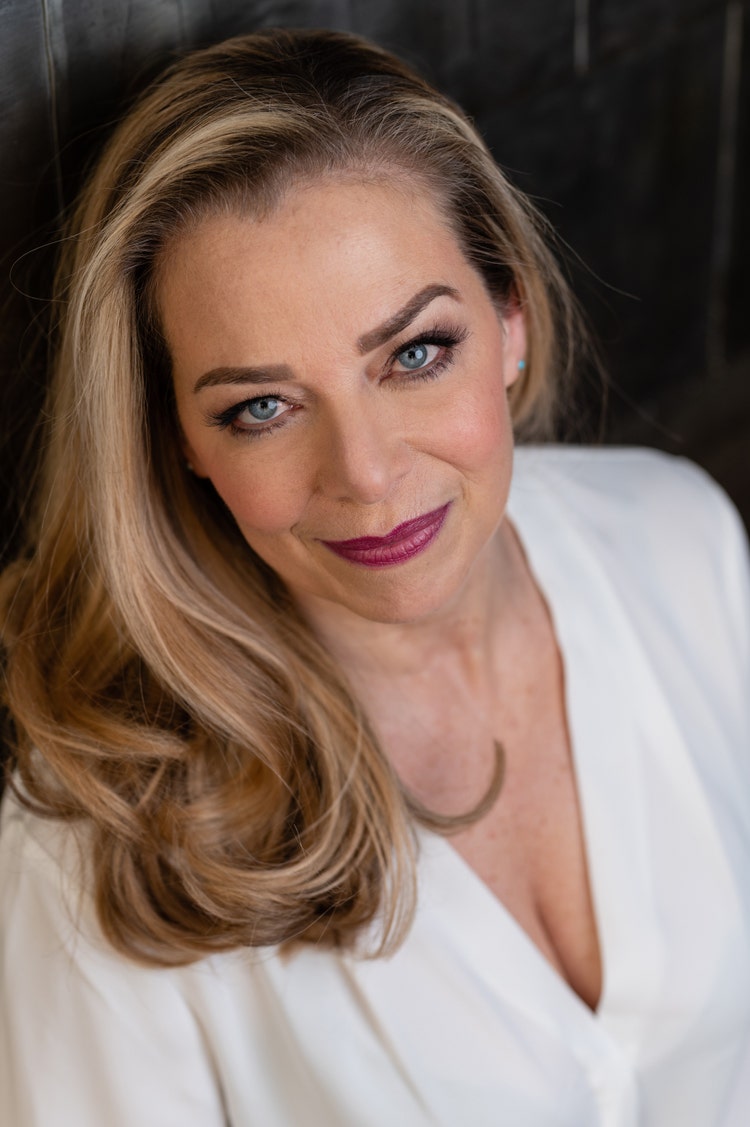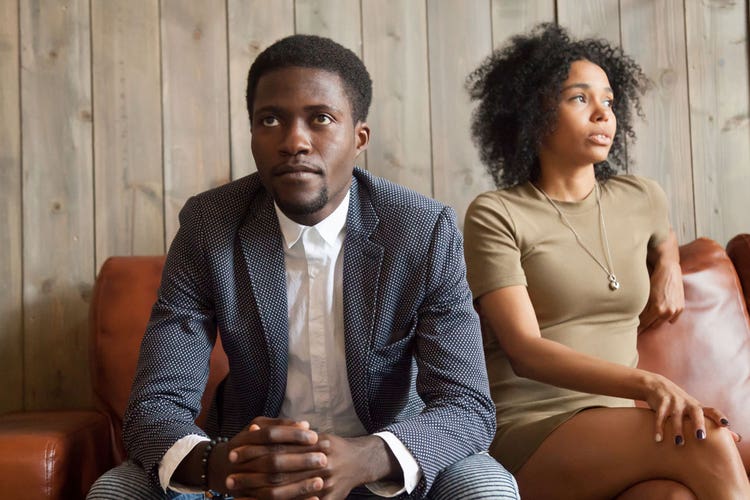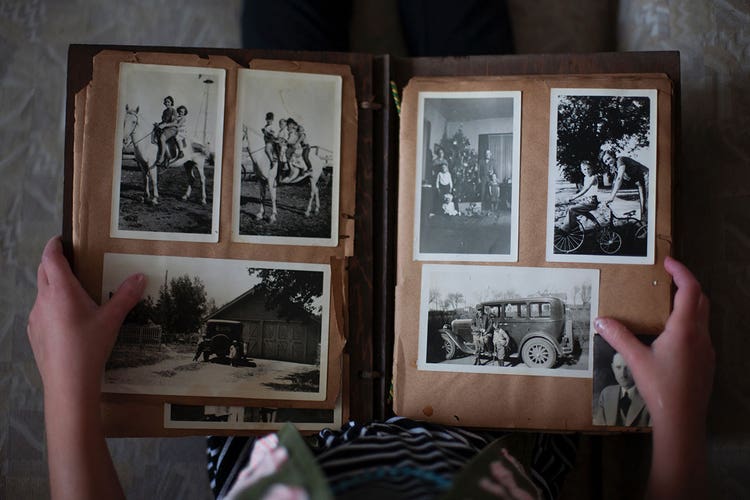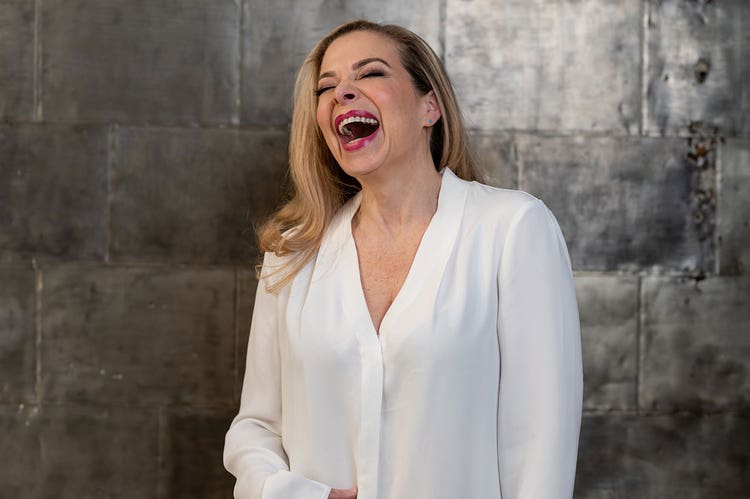Terri Cole: Making Love Work

We all want to love well and be loved well. But despite these warm-and-fuzzy intentions, many of us fail at finding and sustaining deep relationships. Part of the problem, according to psychotherapist and relationship expert Terri Cole, is that our romcom culture makes happily ever after look utterly effortless: Just lock eyes across a crowded room or bump shoulders on the subway and, as The Spice Girls say, “two become one.”
Sorry to burst this easy-love bubble, but like most meaningful things in life, lasting love requires a whole lot of elbow grease. The effort has long-term effects on health and happiness.
We sat down with Cole, founder of Real Love Revolution and Boundary Bootcamp, for some tips on how to attract and continuously nourish healthy love.

Real love starts with self-love
Cole notes that her clients, most of whom are women, often have endless love and compassion for others but not a lot of consideration for themselves. “Look at your relationship with yourself; it sets the bar for every other relationship in your life,” she advises. “Make sure the bar is high enough so that who you attract is someone you can grow with.” When we lack self-respect or don’t hold ourselves in high esteem, we tend to find mates who don’t give us those things either.
Cole suggests tuning back in to our basic needs by journaling, exercising or even going out on a movie date alone. Then she says to listen to our inner voice. Is the tone and language kind? “Instead of being punitive with yourself, instead of being mean,” Cole explains, “be at least as compassionate as you are with your best friend.” The better we can get at treating ourselves with kindness and love, the more we will attract people who will do the same.
Our past informs our present

We aren’t born with an understanding of healthy love. We learn how to love from watching our parents, relatives and community members. From them, we perceive how worthy we are of love and how people in love should behave. Cole calls this our “downloaded love blueprint” and thinks it informs and guides how we will act in relationships for the rest of our lives.
Unfortunately, because of their own unresolved wounds, the people who shape our blueprint often imbue us with self-limiting beliefs. This misinformation gets buried deep in our unconscious and continuously damages the relationships in our lives—and we don’t recognize the common denominator is ourselves.
“When we don’t know what has created our patterns of behavior and the way we relate to others, it just feels like we’re a victim to that,” Cole notes. She suggests asking three questions: Who does this person remind me of? Where have I felt like this before? Why is the way we’re interacting familiar to me?
While this may sound heady or just daunting, Cole stresses that once we know what’s driving us to repeat these unsatisfying experiences, we can use our past to change our present. “This is how you happen to your life instead of your life happening to you,” she explains. Through psychotherapy, journaling or just talking to a friend, we can bring the junk from our basement (the unconscious mind) into the main house (our conscious mind) to clean it up, let it go and make mindful relationship choices.
Rewriting our stories

Here’s the piece of the healthy love puzzle that’s really exciting: It’s never too late to change an ingrained behavioral pattern. If our blueprint is holding us back, we can edit and alter it to a point where our relationships and our relationship goals align. When Cole’s clients do so, they report that not just their romantic relationships but also their friend, sibling, parent and even co-worker relationships also improve.
A big part of rewriting our story is setting boundaries. That means saying “no” to things that physically, emotionally or spiritually harm us. Cole says that instead of blaming toxic people for their poor behavior, we should realize that it’s our life and we control who gets a front-row seat. If a partner, or potential partner, runs hot and cold, doesn’t listen well, withholds information or says one thing but does another, Cole says to pay attention to those behaviors as red flags for future trouble and to consider calling out the behavior or cutting your losses early on. As Maya Angelou would say, “When someone shows you who they are the first time…believe them.”
The same way we can use the past to inform the present, we also can use the present to inform the future. Every failed relationship is an opportunity to learn. Cole says if we find that we’ve lost or neglected the things that make us who we are, we must re-establish our self-love and the boundaries that help keep it in place.
Keep on keeping on

Once we’ve changed our blueprint, rewritten our story, set our boundaries and finally found healthy love, we may feel like taking a break, but meaningful relationships require continued effort. If our relationships feel disconnected or dulled, Cole says to become more “self-sexual” by hitting the gym, visiting the spa or doing whatever feeds our bodies. When we feel good about ourselves, and in turn more deserving of love, we are better at communicating our needs.
And communication is key. Cole recommends reading or revisiting Gary Chapman’s iconic book, “The 5 Love Languages” (Northfield Publishing, 2015) to ensure we’re showing love the way our partner prefers to receive love. If we’d like something in the relationship to change—we’d like him to be more romantic or we’d like her to help around the house—Cole advises against pointing out how our partner is failing us because that rarely inspires change. Instead, she says, changing our behavior forces our partner to respond differently.
In terms of overcoming a major breech of trust, like infidelity, the first step is to recognize that the slip is a symptom of the actual problem, not necessarily the problem itself. Lack of intimacy, absence of appreciation, unresolved resentment, boredom—these are the issues that often underlie an indiscretion. Getting to the root is painful but entirely necessary. If we can move forward from hurt, Cole says, our relationships can be even healthier and more connected.
Make a sound investment

The star-crossed love stories we see in film or hear in music are simplistic. Real, long-term love is an ongoing attempt by two imperfect people to meet one another’s needs. If we accept that the first is fiction and the latter is reality, we have a more honest starting point. True love requires time, attention, and our intention to continuously improve our relationships and ourselves. Cole is the first to admit that this process can be challenging. She’s also the first to admit that it’s the most worthwhile investment we can give to ourselves.
https://www.youtube.com/watch?v=6QSDgtvO04w
Video credit: BONNINSTUDIO, Stocksy
Photo credits: Mark Kuroda, kurodastudios.com; fizkes, Thinkstock; Laura Fuhrman, Unsplash; Priscilla Du Preez, Unsplash
Hair and make-up, Ava Roston